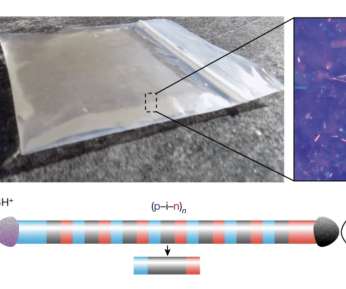UNC team synthesizes silicon nanowires that split water
Green Car Congress
FEBRUARY 10, 2023
Researchers from the University of North Carolina have synthesized high-photovoltage multijunction Si nanowires (SiNWs) that are co-functionalized to split water catalytically. When integrated with the co-catalysts and suspended in water, these light-activated nanoreactors produced hydrogen gas under visible and infrared light.




















Let's personalize your content